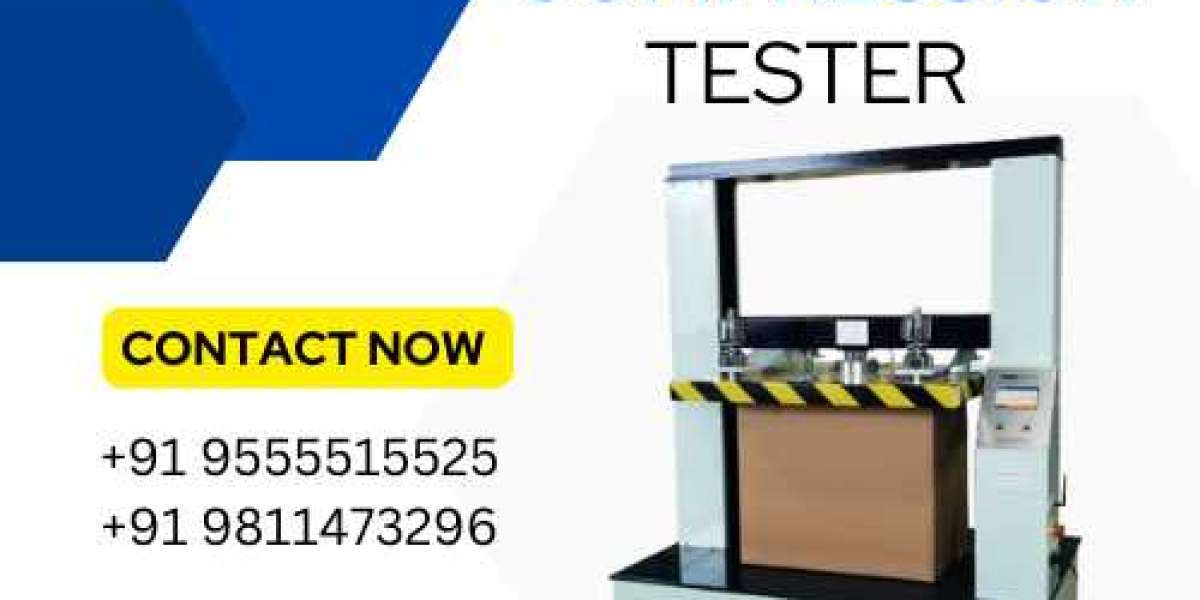Sensitive items are packaged using a variety of corrugated boxes all around the world. One of the best technologies for transporting goods in large quantities from one location to another are these corrugated boxes. These boxes’ appeal is partly due to their ease packaging and mobility.
The corrugated box makers need to build their products to the level of these boxes’ appeal. Only the strongest boxes that guarantee the security of delicate or perishable goods stored inside can attain this rating.
Before being prepared for storage and transportation, these boxes must pass a number of tests to eliminate potential risks including deformation.
In order to assist producers in determining the maximum compression strength that a corrugated box can sustain, Effective Lab India has developed the box compression tester, a thorough lab testing tool.
To make sure that there is no distortion during storage-related operations like stacking, testing must be done in accordance with the specified box compression test standard.
Examining the working module of the box compression strength tester is crucial for a deeper understanding of its importance in the stiff paper and packaging sector.
Working
The box compression strength tester is a fantastic lab test tool with straightforward operation and precision-driven output arrangement that is intended to support paper and packaging sector producers.
A specialized sample placement tray with cutouts for exact and accurate positioning is provided by the lab testing apparatus. For best precision, the specimen must be positioned precisely.
It is crucial to ensure that the box is positioned precisely because once it is, the motorized plate above the lab testing apparatus begins crushing the box.
For smooth operation, a lead screw with a circular design facilitates the movement of the motorized platform. For accurate results, the platform applies a consistent compression force on the specimen.
In accordance with the specified specifications, the platform’s compression rate of the corrugated box is set at 12.7 mm per minute. The platform offers two different kilogram forces: 500 kg and 1000 kg.
Through the use of an HMI-based touchscreen, the instrument assists the operator in profiling the specimen to guarantee optimal performance of the conducted tests. In order to facilitate the straightforward data recording that can result in a critical analysis, the display shows the maximum load as well as the deformation of the tested specimen.
Limit switches prevent the platform from over traveling and do no harm to the instrument by allowing the plate to return to its initial position once the maximum compression has been applied.
Features
The overtravel limit switch, which enables the operator to conduct testing with complete ease and without the inconvenience of an instantaneous turn off after the maximum load is attained, is the primary feature of the box compression test machine.
Numerous capabilities are available to assist manufacturers using the HMI-based touchscreen that powers the instrument box compression tester’s computerization. Along with simple data recording features that let the operator evaluate the results critically and compare them to previously acquired results, the display also lets the operator profile the sample.
In addition, the HMI touchscreen provides many testing techniques, including force, displacement, and time measurements.
Additionally, the device provides a finely made circular lead screw to ensure that the motorized platform or the compression plate operate smoothly. To continually achieve the highest level of accuracy, the lead screw makes sure that the specimen is uniformly compressed.
The instrument is made of mild steel and has a seven-layered powder paint coating to protect it against rust and corrosion and other atmospheric ills over time.
Effective Lab India supplied specific cutouts for the positioning of the corrugated boxes and has obtained maximum precision during the test in order to meet the requirements of the box compression test standard.
Certain questions arise in the minds of producers who work in the stiff paper and packaging sector.












